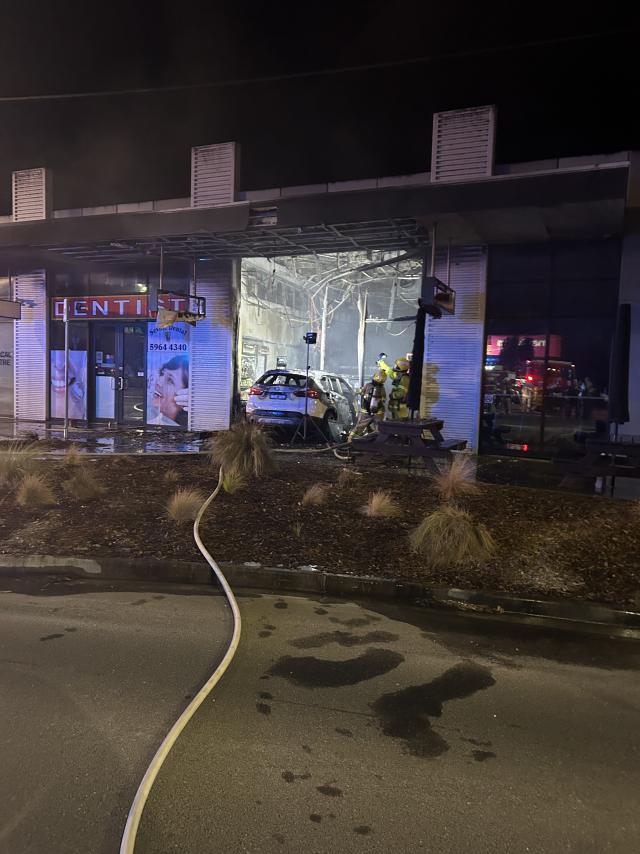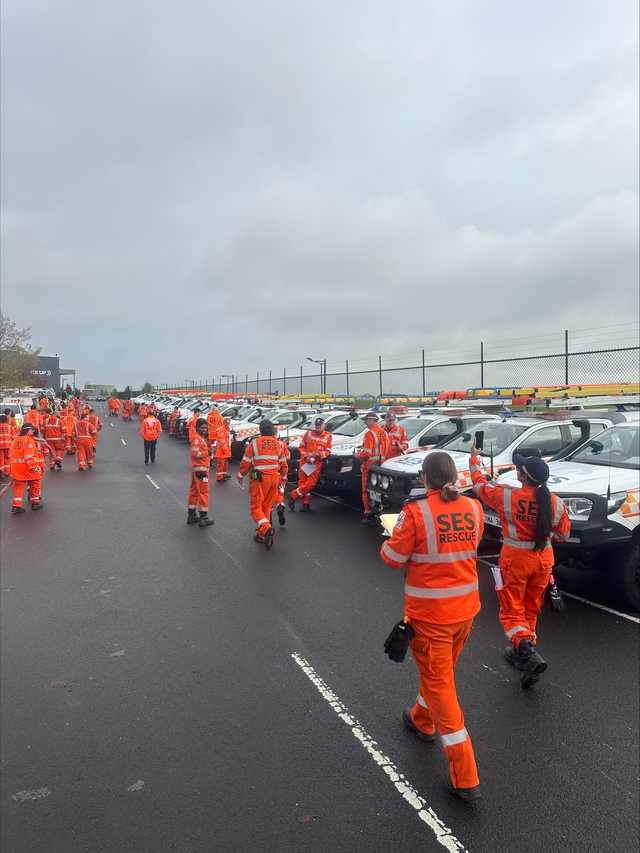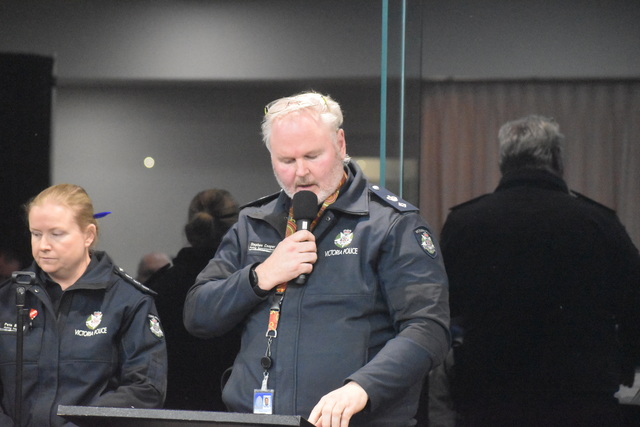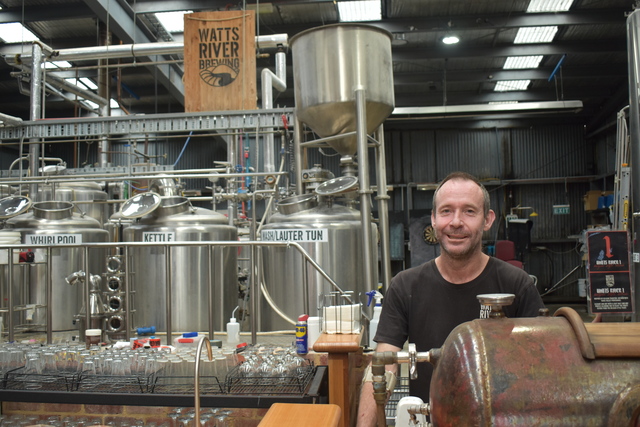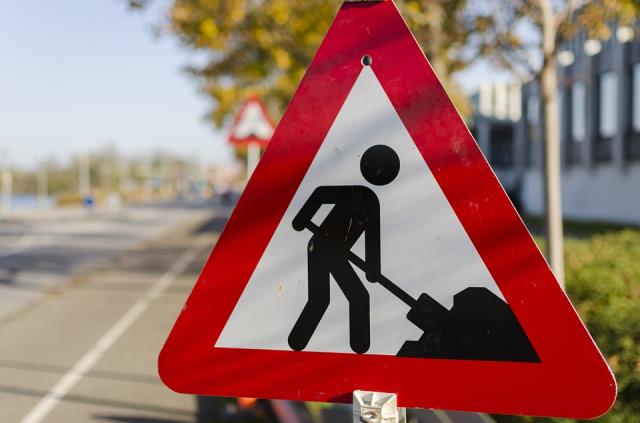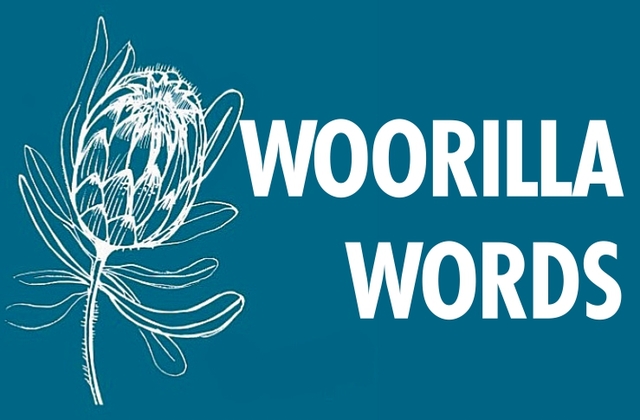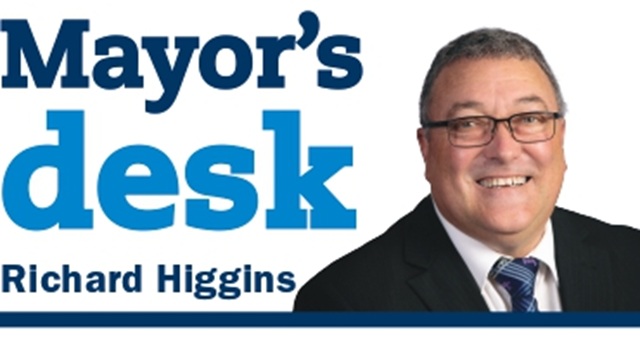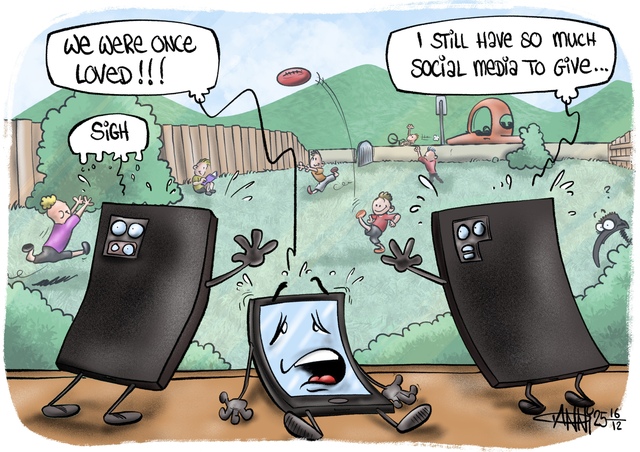Star Mail journalists tried our best to deliver good news stories which impacted the Yarra Valley community significantly in 2024.
Here are the best news stories for each month picked by the Star Mail team.
January: Flooding woes
The year started off with a big flooding in the Yarra Valley which poured into the Yarra Glen sports pavilion.
Three sports clubs, Yarra Glen Football and Netball Club, Yarra Glen Junior Football and Netball Club and Yarra Glen Cricket Club, shared the pavilion as tenants of the property.
Yarra Glen Cricket Club was the main tenant for the summer, and the club’s president Travis Gloury said they tried to respond to the issue as quickly as possible because they had learnt a lesson from the previous experience.
“We were fortunate in a sense that we didn’t have a lot sitting on the ground and everything that we did have sitting on the ground, we were able to get it off the ground the day before,” he said.
“However, it was basically carpet, the MDF skirting boards and the plaster around the building got wet.
“We cleaned it up pretty much that night, got the dehumidifiers in the fans, which tried to get rid of the moisture as quickly as we could to help prevent any further damage.”
February: 15 years on since Black Saturday
Black Saturday marked its 15th anniversary in February.
Some locals shared their memories of the bushfires.
The Black Saturday bushfires disappointed the local firefighters because, despite their hard efforts, they couldn’t do much about them.
Leaving the sorrow behind, community members have tried to make Yarra Valley safer by taking the lessons from the experience.
Yarra Ranges Council has kept working to minimise the risk of diverse disasters; roadside slashing programs and build-up of the emergency service provider network.
March: Pay rise jackpot
Three big announcements for Australia’s aged care workers were made in March to improve their working conditions.
The Fair Work Commission ordered a new minimum pay rate of $1223.90 a week for employees in the sector.
The University of Wollongong’s Centre for Health Service Development has released its final report on ‘Alternative Arrangements for Residential Aged Care Staffing’ commissioned by the Australian Government, creating an outline for acceptable alternative arrangements when registered nurses (RNs) are not available on-site 24/7.
The Aged Care Taskforce report notably chose not to recommend an aged care levy, indicating instead that non-pension consumers, whether residents or their family members, can be called upon to pay more towards the costs of their aged care.
April: Push for justice
Ahead of Anzac Day, Evelyn MP Bridget Vallence and local RSLs continued to push for stricter penalties and a greater deterrent for those who vandalise, desecrate and damage war memorials.
The Mafeking Tree in Lilydale (Anglo-Boer War Memorial), Lilydale War Memorial, Lillydale Lake Militia Camp Storyboard, Seville War Memorial, Mt Evelyn War Memorial, Montrose War Memorial and the Mooroolbark War Memorial in the Evelyn electorate alone were targeted and sometimes on multiple occasions.
“I have received an overwhelmingly positive response from veterans and many residents in our community about advocating for stronger penalties for the desecration of war memorials in Parliament,” Ms Vallence said.
“Veterans and community members have told me of the sadness they have experienced in seeing these sacred war memorials being desecrated.
“I hold grave fears we will see more attacks. These attacks are not just happening here in Evelyn, they are happening all over Victoria, with many public monuments being disrespected and destroyed. Unless the government takes stronger action against these crimes, I fear these attacks will worsen.”
May: Emergency funds
As Wear Orange Wednesday rolled around on 22 May, SES crews across the state called for more support and more funding.
The cost of fuel, vehicle maintenance, equipment maintenance, equipment replacement, consumable items and utilities were all further expenses SES units either had to pay for or apply for grants to cover.
Upper Yarra SES unit controller Hannah Brunton said the funding model for VICSES was not sustainable for the costs of the services that they provided and relied heavily on volunteer-led fundraising.
“Many people assume that VICSES receive funding from the Fire Services Levy however this is not the case, the current Fire Services Levy works really well for the fire services, and we obviously support it and are not seeking a reduction in funding provided to our fire emergency service colleagues – we work with them and support the valuable work they do,” she said.
“Many people do not realise how little funding we actually receive or how far this goes. Using Upper Yarra as an example, we have five vehicles, one rescue truck which is state-funded and four other vehicles which are unit-funded and each vehicle that a unit funds needs to be fitted out with equipment such as radios and emergency lights as well as retrofitted for operational usage to include storage to safely stow our equipment.”
June: Casey remains amid rejig
The Casey electorate was set to survive the electoral redistribution in Victoria, with the Australian Electoral Commission (AEC) proposing the inner-east seat of Higgins be abolished to bring the state down to 38 seats ahead of this year’s election.
Casey had been suggested to be abolished by the Australian Labor Party in the submission process but gained a few thousand voters to bring up the minimum requirement at a projected date in just under four years’ time.
The Chair of the Committee and Electoral Commissioner Tom Rogers said the Victorian redistribution was required to enable a decrease from 39 to 38 electoral divisions.
“Under the proposal, some significant changes would occur, with the boundaries of Victorian divisions being amended to accommodate the decrease,” he said.
“38 of the existing 39 division names would be retained with the Division of Higgins to be abolished.”
Casey MP Aaron Violi said he was very happy that the electorate is remaining.
“It is a special and unique community that should be represented by one voice and it’s great to see that the Electoral Commissioners recognise that and that we will continue to have one federal voice representing the Yarra Ranges Council area which is the best thing for our community,” he said.
July: Reckless hunters
Instances of illegal deer hunting in the Upper Yarra rose again in July, prompting local police to call on hunters to make sure they were doing the right thing.
Illegal behaviour in regard to deer hunting includes hunting without a Game Licence, using incorrect firearms, calibres and ammunition, hunting in prohibited areas including hunting on private property without
permission, breaching Victoria’s spotlighting laws and regulations and the incorrect use of dogs and dog breeds.
Officer in Charge at the Warburton Police Station Jason Kelly said the laws and regulations surrounding the use of firearms for hunting/pest control exist to keep everyone safe.
“Police have genuine concerns for public safety as well as domestic pets/livestock when firearms are used in contravention of the laws and regulations, such as when they are used on private property without the knowledge or permission of the owners,” he said.
“Legal hunting on public land (i.e. state forest) can only occur during daylight hours with the required licences and permits. It is illegal to possess, carry or use a loaded firearm in a public place – which covers roadways or residential streets.
“It is also illegal to possess, carry or use a loaded firearm in a non-public place with reckless disregard for safety, these are indictable (arrestable) offences and carry potential jail sentences if found guilty at court.”
August: Pothole nightmare
A local who works for the road maintenance equipment company raised questions about the Victorian Government’s road maintenance policy as potholes plagued the Outer East.
The data revealed the government spent $37 million on road resurfacing works in the 2023-24 financial year, which was a huge drop from the previous year’s $201.4 million.
Mr Hardiman claimed that the pothole issue facing drivers would have been greatly reduced if the government had not slashed funding on preventative road maintenance, in particular, road resurfacing and waterproofing.
He was disappointed at the State Government which blamed the unprecedented weather events.
“Although the extreme rain in 2022 undoubtedly had an effect on parts of the road network, it is the unprecedented lack of preventative maintenance which is allowing a significant deterioration on the rest of the road network,” he said.
“They [roads] are falling apart, they have not been receiving the necessary preventative maintenance, they just get temporary patches, which is understandable in the wet months.”
September: Risks on the road
Victoria Police hosted a forum to discuss road policing and road safety based on the statistics as well as to answer the questions raised by the community members at Yarra Valley Racing.
About 50 people attended the forum including emergency services members, police officers, representatives from Yarra Ranges Council and the Department of Transport and Planning along with local politicians.
Victoria Police Acting Senior Sergeant Laureina Everett said Yarra Ranges is one of the top three areas for serious injury and fatal collisions in the state.
“From our point of view as police, we want to speak to the community, engage with them and let them know what we’re doing in terms of road trauma, as well as getting the community to have their input about any issues that they’ve identified so that we can address them and listen to their ideas and facts,” she said.
“We really encourage the community to make sure that they’re playing their part, their cars are registered and roadworthy, they have a driver’s licence, they’re driving to the conditions, and they’re not substance affected while they’re driving, they’re not being distracted by using their phones.”
October: Brews and blues
In August, it was confirmed the taxes on beer and spirits have effectively gone up two per cent.
In the following two months, Star Mail had a chat with workers in the drinks industry to discuss how the continual high inflation had hit the local drinks industry, and what would be the possible solution.
After 18 consecutive tax increases, beer prices rose steeply, with the cost of a pub pint heading towards as much as $18.
Yarra Valley Spirits owner Matthew Barnard said reducing the alcohol excise is a complicated issue but if it is well managed, it is going to help the Australian spirits industry.
“[The reduced excise] would certainly help the Australian producer get more products to the market at a more affordable price point,” he said.
“But if the excise is reduced, it would also reduce the price of the big international products as well.
“If the excise was more manageable though, the producers would be able to compete with other products on the market such as beer and wine categories, even some RTDs [Ready-to-drink alcohol products].”
What’s River Brewing in Healesville has been operating since 2015.
Business owner Ben Hamilton said he might have to make some tough decisions if the pressure doesn’t come off soon.
“Leading into Covid, we were growing as a business. Covid was very difficult for us and then after that cost of living pressures pretty much hit straight away so we haven’t had any relief. At the moment our business is losing money, which is obviously not sustainable,” he said.
November: Violence targeted
In November, Star Mail reported about the Victorian Liberals and Nationals’ attempt to introduce a bill to combat the illicit tobacco trade.
Eildon MP Cindy McLeish said with tobacco stores opening across the Yarra Ranges, locals and business owners wanted to ensure they and their businesses were safe as firebombing incidents escalated.
“Firebombing is very widespread across Victoria, surging well past 100 attacks, making it harder for surrounding businesses to secure insurance. It is not in just one spot; it is a big issue that also relates to organised crime,” she said.
“The Government needs to tackle organised crime and look after the small businesses surrounding tobacco shops and those that own the premises that are firebombed. All of those businesses could have been saved by having a licensing scheme.”
Just a week after the Star Mail delved into the issue of the illicit tobacco trade, the Victorian Government announced its measures to improve regulation.
“We’re implementing the toughest laws anywhere in the country to smoke out the illegal tobacco trade and keep Victorians safe,” Premier Jacinta Allan said.
Throughout the year, Star Mail reported a few articles regarding the illicit tobacco issues across the Yarra Valley.
A 19-year-old Officer man was arrested in relation to the investigation into a suspicious fire at a tobacco store in Seville on 11 February.
In May, a Yarra Ranges landlord told the Star Mail how frustrated he was when he heard the news about Victoria Police’s tactic to identify illegal tobacconists after his alleged experience of reporting a similar crime went unanswered.
The landlord rented his property to a tenant who was going to open a business for tobacco selling in 2018, and a few months later he realised his tenant was selling illicit tobacco.
He claimed he reported it to local police, Victoria Police, the Australian Federal Police and even the Australian Taxation Office (ATO), but no action was taken by any of them.
December: Station’s history
2024 marked the 100th anniversary of the closure of the Coranderrk Aboriginal Station.
Coranderrk was central to the history of Victorian First Nations communities as it was one of the six aboriginal reserves that were established in Victoria to save First Nations people from extinction.
After getting through a hard period, Coranderrk Aboriginal Station was officially closed down in 1924.
Despite the closure, the history of Coranderrk did not end in 1924 as the stories of Coranderrk have been continuing until today through descendants.
In the 1990s, Indigenous Land and Sea Corporation purchased the property of the part of Coranderrk and handed it over to Wandoon Estate Aboriginal Corporation (WEAC), which was set up to manage the property run by the Wandin family, the descendants of Robert Wandin who was one of the leaders of the Coranderrk residents as well as the nephew of Willam Barak.
WEAC has managed the Coranderrk since then, aiming to keep the legacy of the ancestors of the Coranderrk in the reconciliation movement.

